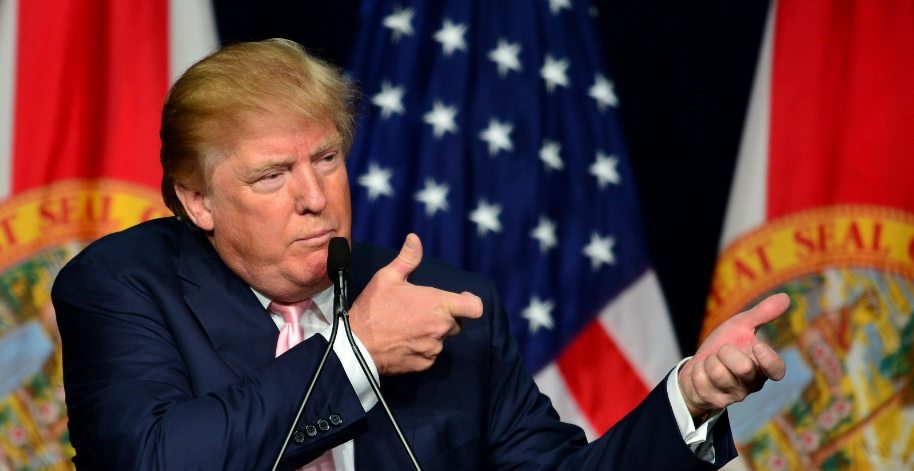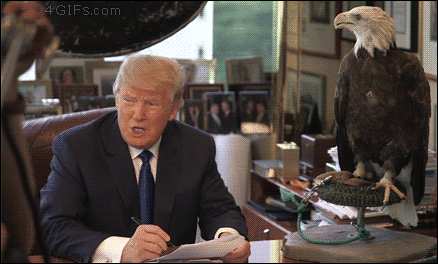“The next four years are the critical inflection point,” writes Robert Kagan in largely dire Brookings report, “The Twilight of the Liberal Order,” offering a contention that should scare the hell out of Americans and allies who depend on us, while cheering the Chinese and Russians.
Since the piece was published just about a week ago, the new President, an unhinged person whose policy seems mostly the handiwork of his white-supremacist sidekick, issued a hastily written, racist ban on certain immigrants and has made it even more clear he doesn’t care about the plight of any country beyond our borders. (That his governance will also likely have devastating consequences domestically is a parallel concern.)
America’s raison d’être as a shelter for refugees, beacon for the world and defender of liberal democracy, has no place in nationalistic Trumplandia, which will lead to other countries filling the power gap. But you can’t build a wall to keep out the future, and Kagan believes that absent America’s guiding hand, a large-scale war becomes much more likely, something Steve Bannon wouldn’t mind, given his stated desire to take military action against China. The Chief Strategist’s bloody dreams combine the worst of the United States’ inclination for adventuring with a newly narrowed self-interest.
It seems as if the Administration believes it can run the world stage the way Gotti ran Queens, with endless bluster and shakedowns. Whether or not it ends in world war, it will not end well.
An excerpt:
In recent years, however, the liberal order has begun to weaken and fracture at the core. As a result of many related factors—difficult economic conditions, the recrudescence of nationalism and tribalism, weak and uncertain political leadership and unresponsive mainstream political parties, a new era of communications that seems to strengthen rather than weaken tribalism—there has emerged a crisis of confidence in what might be called the liberal enlightenment project. That project tended to elevate universal principles of individual rights and common humanity over ethnic, racial, religious, national, or tribal differences. It looked to a growing economic interdependence to create common interests across boundaries and the establishment of international institutions to smooth differences and facilitate cooperation among nations. Instead, the past decade has seen the rise of tribalism and nationalism; an increasing focus on the “other” in all societies; and a loss of confidence in government, in the capitalist system, and in democracy. We have been witnessing something like the opposite of the “end of history” but have returned to history with a vengeance, rediscovering all the darker aspects of the human soul. That includes, for many, the perennial human yearning for a strong leader to provide firm guidance in a time of seeming breakdown and incoherence.
This crisis of the enlightenment project may have been inevitable. It may indeed have been cyclical, due to inherent flaws in both capitalism and democracy, which periodically have been exposed and have raised doubts about both—as happened, for instance, throughout the West in the 1930s. Now, as then, moreover, this crisis of confidence in liberalism coincides with a breakdown of the strategic order. In this case, however, the key variable has not been the United States as the outside power and its willingness, or not, to step in and save or remake an order lost by other powers. Rather it is the United States’ own willingness to continue upholding the order that it created and which depends entirely on American power.
That willingness has been in doubt for some time. Increasingly in the quarter-century after the end of the Cold War, Americans have been wondering why they bear such an unusual and outsized responsibility for preserving global order when their own interests are not always apparently served and when, indeed, the United States seems to be making sacrifices while others benefit. The reasons why the United States took on this abnormal role after the calamitous two world wars of the 20th century have been largely forgotten. As a consequence, the American public’s patience with the difficulties and costs inherent in playing such a role has worn thin. Thus, whereas previous unsuccessful wars, in Korea in 1950 and Vietnam in the 1960s and 1970s, and previous economic downturns, such as in the mid- to late 1970s, did not have the effect of turning Americans against global involvement, the unsuccessful wars in Iraq and Afghanistan and the financial crisis of 2007–09 have had that effect. President Obama pursued an ambivalent approach to global involvement, but the main thrust of his approach was retrenchment. His actions and statements were a critique of previous American strategy and reinforced a national mood favoring a much less active role in the world and much narrower definition of American interests.
With the election of Donald Trump, a majority of Americans have signaled their unwillingness to continue upholding the world order. Trump was not the only candidate in 2016 to run on a platform suggesting a much narrower definition of American interests and a lessening of the burdens of American global leadership. “America First” is not just an empty phrase but a fairly coherent philosophy with a long lineage and many adherents in the American academy. It calls for viewing American interests through a narrow lens. It suggests no longer supporting an international alliance structure, no longer seeking to deny great powers their spheres of influence and regional hegemony, no longer attempting to uphold liberal norms in the international system, and no longer sacrificing short-term interests—in trade for instance—in the longer-term interest of preserving an open economic order.
Coming as it does at a time of growing great power competition, this new approach in American foreign policy is likely to hasten a return to the instability and clashes of previous eras.•


